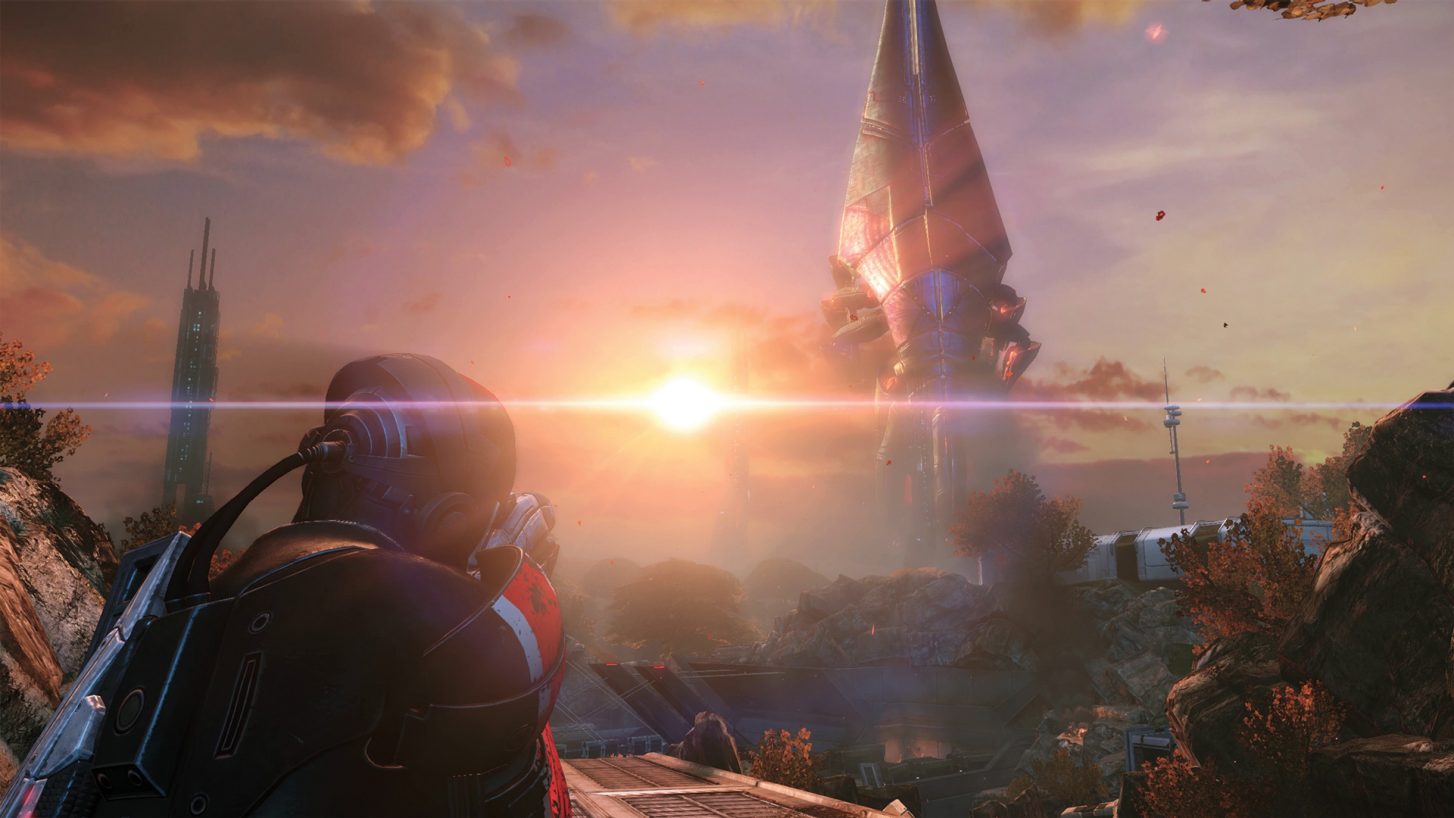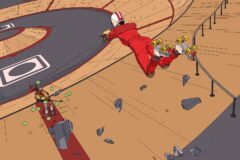Jack Wall’s career as a video game composer is likely what most musicians dream of when they decide to get into the gaming industry.
He’s crafted soundtracks for dozens of games on the planet since his 1998 start and is the only person trusted with scoring classic series like Mass Effect and the Call of Duty: Black Ops games. Sprinkle in titles like Myst III and IV, Jade Empire, The Mark of Kri, and the classic known as Disney’s Extremely Goofy Skateboarding, and Wall’s discography rivals any composer’s in terms of both success and variety.
With a minute to breathe between the best-selling launch of Call of Duty: Black Ops Cold War and the long-awaited release of the Mass Effect trilogy soundtracks on vinyl to accompany May’s Mass Effect: Legendary Edition, Wall spoke with SPIN to discuss his multi-decade career and recent projects.
SPIN: What went into crafting Cold War’s very unique “time-appropriate but still futuristic” sound?
Jack Wall: Our brief from the top was “vintage ‘80s synth modernized.” We didn’t want to sound too vintage, as that might bring up comparisons to some recent pop culture media phenoms like Stranger Things. We wanted to keep it dark to suit our history with the Black Ops series as well.
Speaking of the Cold War soundtrack, what was it like to finish up a project of that scale while in the middle of a pandemic?
It was definitely a challenge. Luckily, at the time we recorded the orchestra — both in June and early September — Nashville was open and experiencing relatively low COVID activity. We simply recorded each section separately. The strings were all together, but more separated with single desks and masks. The brass was on their own, pointing their instruments to the middle of the room and not at each other, and same with the woodwinds.
The choir recordings were a whole other level of care and effort. As we all know, singing in a choir is a very likely way to have a super-spreader event. If just one person has COVID, everyone would be exposed by the end of the session. Therefore, Ayana Haviv — who contracts my choirs — found 32 singers who all had the ability to record themselves at home, one at a time. We had our engineer, Jason LaRocca, write a one-page guide on how they should all record themselves. It was “one pass about nine inches away, and a second pass off-axis of the microphone to expand the color and timbre from the original pass.” Then a music editor put it all together, cleaned all the tracks up, and mixed it in with the orchestra and synth parts. I have to say, I’m pleased with how it all came out and we kept everyone safe — not to mention employed.
As the go-to composer for the Black Ops games, how much emphasis is there on keeping the sound of each of them cohesive and recognizable as a series, while still making sure they’re each fitting for the single game?
Well, the last four have all been me, and that’s about the extent of keeping them sounding the same. We approach each game differently than the last, as the stories are varied and go in different directions. We did manage to use a few cues from the first Black Ops in Black Ops II, but aside from that, each game is its own world. I just like those dark synths as a common thread throughout, but other than that, I don’t think we have repeated ourselves too much.
As someone who’s been working on major games for 20 years now, how have you seen the industry and your role in it change over the decades?
For starters, there are so many talented composers working in games today, whereas there were far fewer back when I started. It’s pretty cool how much games have evolved into a very dominant medium, because I see video games as taking their proper place in our culture. They are now recognized and praised by everyone from all walks of life — not to mention all ages. That means my profession is more competitive, but I love that. When I get a game, I’m juiced to do the best work I can every time now. It’s inspiring.
What’s the difference for you when you get to score multiple games in a series — like Myst, Mass Effect, or Black Ops — compared to an IP you’ve never worked on before?
I love the continuity of scoring a series where we’re trying to best the last outing. I think we improved from Mass Effect to Mass Effect 2 through the simple fact that pretty much the same team worked on both games and everyone was aligned to make that happen. Same with the Black Ops series — we’re always trying to go to the next level. But when scoring something new, there is the excitement of doing perhaps the next big game and maybe making some sort of history with what we’re doing. That challenge never gets old.
With Mass Effect: Legendary Edition set to release in May and the soundtracks finally becoming available on vinyl, what can people look forward to in revisiting those scores?
I’m so honored to have been a small part of one of the most iconic game series in history. The fact that a whole new generation will have the opportunity to play these games updated for the new consoles is just an amazing and rare thing. There are only a handful of games that get that treatment. The great thing is every playthrough feels like a new experience where you can take multiple routes through the story and the gameplay. I just want people to have fun with it.





